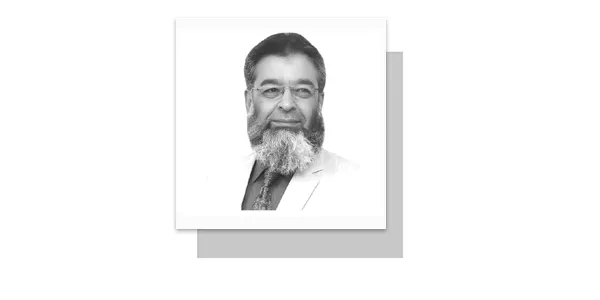THE recent news that pilgrims going for Umrah and Hajj are now required to submit affidavits declaring they will not engage in begging upon their arrival in Saudi Arabia is both alarming and deeply humbling. This development reflects not only the actions of a minority but the larger perception of us as a nation on the world stage. It raises critical questions:
How did we arrive at this point? What does this say about our collective character and what are the broader implications for a nation that proudly claims to be a nuclear power? The issue of begging, particularly by those who do so professionally and not out of genuine need, is not new. For decades, organized begging networks have operated openly, exploiting human sympathy and tarnishing the image of societies they represent. When these networks cross international borders, they bring shame not only to themselves but also to their nations. Unfortunately, Pakistan, despite its rich history and resilience, has become associated with such behaviour. This has led to restrictions not only in Saudi Arabia but also discussions in other Gulf States and the Middle East regarding curbing the entry of individuals perceived to be beggars.
In the Quran and Sunnah, begging is addressed with clarity and wisdom. Islam encourages the dignity of labour and self-reliance while providing mechanisms like zakat, sadaqah, and waqf to support those genuinely in need. The Last Prophet (peace be upon him) emphasized the importance of earning one’s livelihood, declaring that it is better for a person to gather firewood and sell it than to beg without need. He also warned against making begging a habitual practice, stating that those who do so without necessity would face disgrace in the Hereafter. Thus, the Islamic ethos is clear; while the community has a duty to support the truly needy, professional begging is neither honourable nor acceptable. The current situation serves as a mirror to our collective shortcomings. Despite being a nuclear power with immense potential, we are plagued by issues of poverty, lack of education and a weak moral compass that allows such practices to thrive. A nation with one of the world’s largest youth populations, abundant natural resources and a strategic geopolitical position should not be known for its begging syndicates. Yet, this is the reality we face. It is not just about economic poverty but a deeper, more troubling poverty of character.
Character building as a nation is now a matter of survival, not choice. The solution begins at home, with families instilling values of hard work, self-respect and empathy in children. Schools and religious institutions must play their part in emphasizing moral education alongside academics.
Our leaders, too, must lead by example, demonstrating integrity and accountability in governance. A culture of self-reliance and pride in lawful earning must replace the culture of shortcuts and dependency that currently prevails. Furthermore, structural reforms are essential to address the root causes of professional begging. Poverty alleviation programs must be strengthened and public welfare systems expanded to ensure that those genuinely in need are supported without resorting to begging. At the same time, strict laws must be enacted and enforced against organized begging networks. This will require political will, societal support and collaboration between government and non-governmental organizations.
On the international front, the need to rebuild our image is urgent. As a nation, we must strive to project our strengths: our talent, resilience and contributions to global peace and progress. Pakistan’s status as a nuclear power must translate into leadership in science, technology and humanitarian efforts.
This requires investment in education, innovation and diplomacy to demonstrate that we are a nation of potential and dignity. The affidavit requirement for pilgrims is a wake-up call. It is a moment of collective reflection on who we are and what we stand for. Let it not be a source of shame alone, but a catalyst for change. As individuals and as a nation, we must align our actions with the values of honesty, self-respect and compassion that our faith and culture uphold. Only then can we begin to shed the stigma of professional begging and reclaim our rightful place in the world. Our faith teaches us that Allah helps those who help themselves. The time has come to rise above our circumstances, address our internal weaknesses and work tirelessly to build a Pakistan that commands respect rather than pity.
This journey begins with character building at every level, for without character, even the mightiest powers crumble. Let us heed this lesson and embark on the path of reform for the sake of our dignity and our future.
—The writer is contributing columnist, based in Islamabad.










